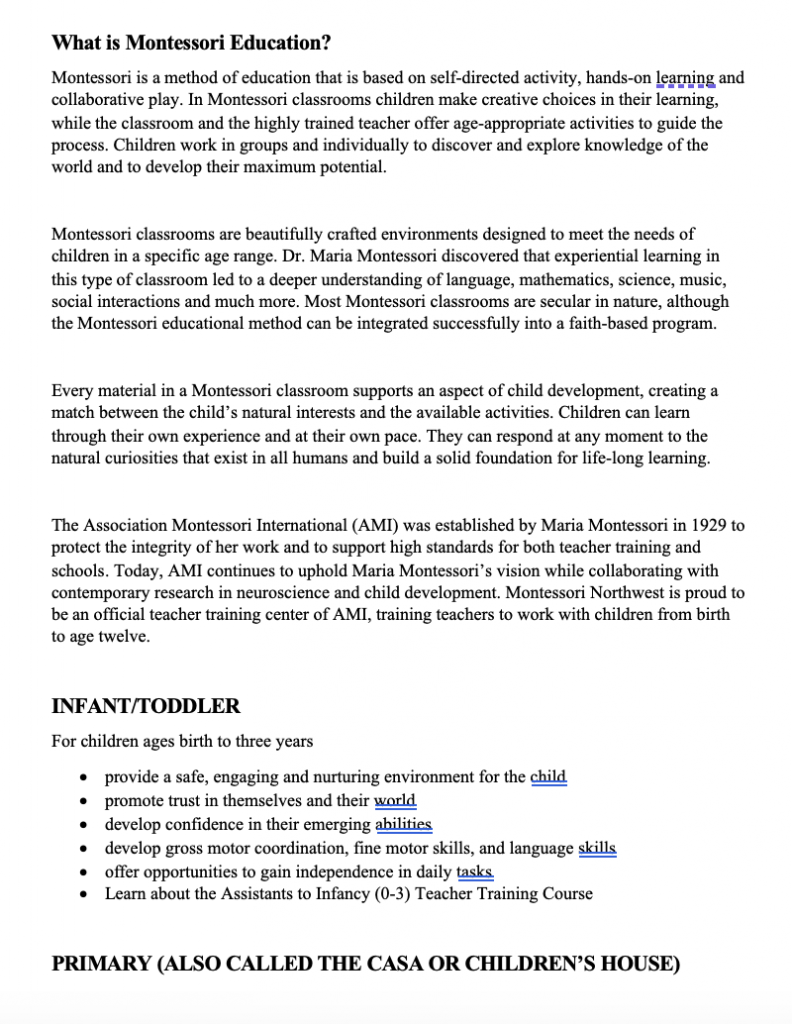Montessori Education
Summary:
Montessori education is a self-directed, hands-on learning approach that emphasizes collaborative play. It offers age-appropriate activities in beautifully crafted classrooms to guide children’s learning and development. Dr Maria Montessori, the founder of Montessori education, discovered that experiential learning in these classrooms leads to a deeper understanding of various subjects and promotes social interactions. Montessori classrooms are designed to meet the specific needs of children in different age groups, from infants/toddlers to adolescents. The Association Montessori International (AMI) was established to protect the integrity of Montessori education and ensure high standards for teacher training and schools. Montessori education emphasizes respect, a prepared environment, hands-on learning, discovery, the role of trained adults, imagination, freedom of choice, and independence. AMI Montessori teachers are in high demand and receive rigorous training to effectively guide children’s learning. Montessori education fosters the whole child’s growth and prepares them to be confident, independent, caring, and self-motivated individuals. Understanding children’s developmental needs is crucial for positive parent-child relationships, and Montessori education offers insights into meeting those needs. Montessori education cultivates a love for learning, respect for others, and a sense of responsibility by providing opportunities for children to engage in meaningful activities. Ultimately, Montessori education prepares children for success in all areas of life by nurturing their individual strengths and interests.
Excerpt:
Montessori Education
What is Montessori Education?
Montessori is a method of education based on self-directed activity, hands-on learning and collaborative play. In Montessori classrooms, children make creative choices in their learning, while the classroom and the highly trained teacher offer age-appropriate activities to guide the process. Children work in groups and individually to discover and explore knowledge of the world and to develop their maximum potential.
Montessori classrooms are beautifully crafted environments designed to meet the needs of children in a specific age range. Dr Maria Montessori discovered that experiential learning in this type of classroom led to a deeper understanding of language, mathematics, science, music, social interactions and much more. Most Montessori classrooms are secular in nature, although the Montessori educational method can be integrated successfully into a faith-based program.


Reviews